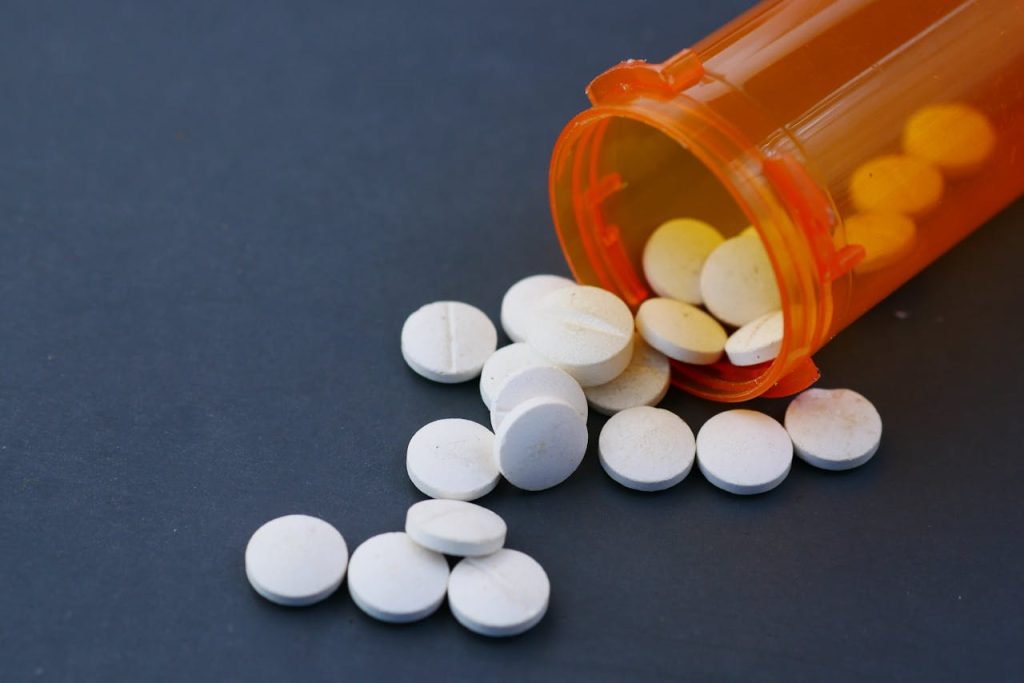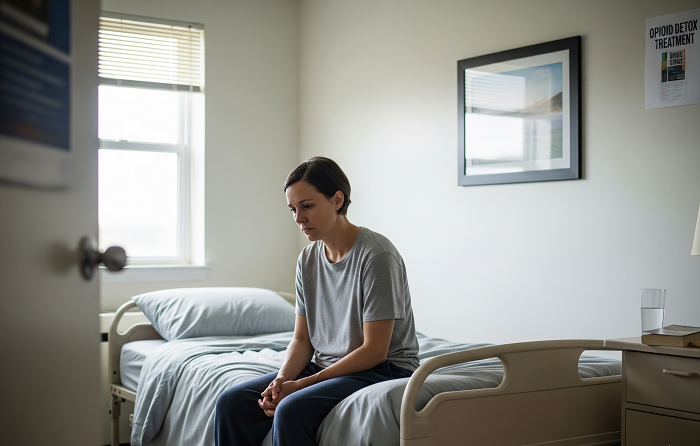Opioid Detox can often be the first step in the right direction towards recovery. At DeLand Treatment Solutions, we realize that escaping the opioid dependence is not only about ceasing taking the drug, but about providing you with a secure and welcoming setting in which your body and mind will be able to start their recovery. The initial important step in the long term recovery process is detox and it does not necessarily have to be overwhelming with proper medical advice.
What is Opioid Detox?
Opioid detox is defined as a procedure that entails the removal of opioids by the body and the subsequent management of withdrawal symptoms in a secure setting. When an individual gets addicted to opioids, his body adapts to the presence of the drug. Quitting abruptly will cause uncomfortable or even risky withdrawal symptoms. Supervised detox will provide you with a medical prescription, emotional support, and a safe environment to assist you in this crucial period of recovery.

Opiate Detox Symptoms
The symptoms of withdrawal may be different depending on the period of time and the amount of opioids used by the person. Provided were common opiate detox symptoms:
- Anxiety or restlessness
- Sweating and chills
- Runny nose and watery eyes
- Nausea, vomiting, or diarrhea
- Insomnia or disturbed sleep
- Muscle aches and cramps
- Strong cravings
Although the symptoms are short-lived, they may seem overwhelming without the help of a qualified doctor. This is why any professional attention in the process of detox makes it safer and easier.
Opiate Detox Timeline
The process of detoxing opiate varies in everyone. In the majority of cases, the withdrawal starts within 612 hours after the final dose, peaks in 2-3 days and slowly advances throughout a week. However, some symptoms such as fatigue, cravings, or mood changes may last longer.
Early withdrawal (6–24 hours): Anxiety, muscle aches, insomnia, sweating, and cravings
Peak withdrawal (2 to 4 days): extreme cravings, nausea, diarrhea, vomiting and flu-like symptoms.
Late withdrawal or 5-7 days: The withdrawal improves gradually, but certain symptoms such as low energy or depression may persist.
The knowledge of the detox schedule allows establishing achievable goals, and it supports the necessity of professional assistance.
How Long Does Drug Detox Last?
The most frequently asked question is, what is the duration of drug detox? The response differs according to the opioid administered, duration of usage and the general health of an individual. In most cases, opioid detox lasts between 5 and 10 days. There are those who might require further medical assistance in lingering symptoms or cravings. We will tailor detox plans at DeLand Treatment Solutions to suit your individual needs and provide you with the support you need after the detox.
Opiate Detox Medications
Drugs are used to mitigate withdrawal symptoms and to alleviate craving in the course of detox. Popular opiate detox drugs are:
Methadone – assists in controlling withdrawal and cravings in a controlled manner.
Buprenorphine (Suboxone®) – lessens the effects of craving and withdrawal, without the similar intoxication effect as opioid.
Clonidine – used to treat anxiety, agitation, and certain physical symptoms.
Naltrexone – frequently taken following detox to avert relapse.
Under medical guidance, these drugs make the procedure safer and more comfortable, as well as raise the chance of a successful outcome in the long-term.
Opiate Detox Facility
One of the most significant parts of recovery is to choose the proper opiate detox center. A professional treatment center such as DeLand Treatment Solutions offer:
- 24/7 medical supervision
- Comfortable and safe environment
- Availability of drugs to deal with withdrawal.
- Emotional and psychological support
- Transition planning for continued treatment after detox
A facility provides a structure, security, and support, unlike attempting to detox at home, which lacks structure, is unsafe and not supportive.
Opiate Detox Center
At DeLand Treatment Solutions, we have an opiate detox center that integrates evidence-based medical care and compassionate care. We are not only interested in physical stabilization but rather in equipping you with the follow-up recovery phase, be it residential treatment, outpatient care, or therapy. Our well-trained staff of doctors, therapist and counselors makes sure that you do not have to go through this journey single-handedly.

Take the First Step Today
You do not need to detox by yourself in case you or someone you love is having a hard time using opioids. At DeLand Treatment Solutions, you will find a safe, supportive, and effective environment in which to start your recovery.
To talk to a specialist and get more information on our opioid detox treatment options, call us at (386)-866-8689 today or complete our confidential contact form. Your healing process can begin.
FAQs About Opioid Detox
What is the drug of choice for opioid detoxification?
The most commonly used medications are methadone and buprenorphine. These help reduce cravings and withdrawal symptoms, allowing individuals to detox more comfortably and safely under medical supervision.
What to eat when detoxing from opiates?
A balanced diet is important. Focus on light, nutritious foods such as fruits, vegetables, whole grains, and lean proteins. Hydration is also key, as water and electrolyte-rich drinks help the body recover.
What do they give you in rehab for withdrawals?
In rehab, doctors may prescribe medications like buprenorphine, clonidine, or methadone to ease withdrawal symptoms. These medications are combined with supportive care to keep you comfortable throughout detox.
What do they give recovering opioid addicts?
Recovering individuals may receive medications such as naltrexone or buprenorphine for relapse prevention. Alongside medical care, ongoing therapy and support groups play a crucial role in maintaining long-term recovery.
Can I detox from opioids at home?
Detoxing at home is risky and often leads to relapse. A professional opiate detox center offers medical care, emotional support, and a safe environment, giving you the best chance at long-term recovery.






